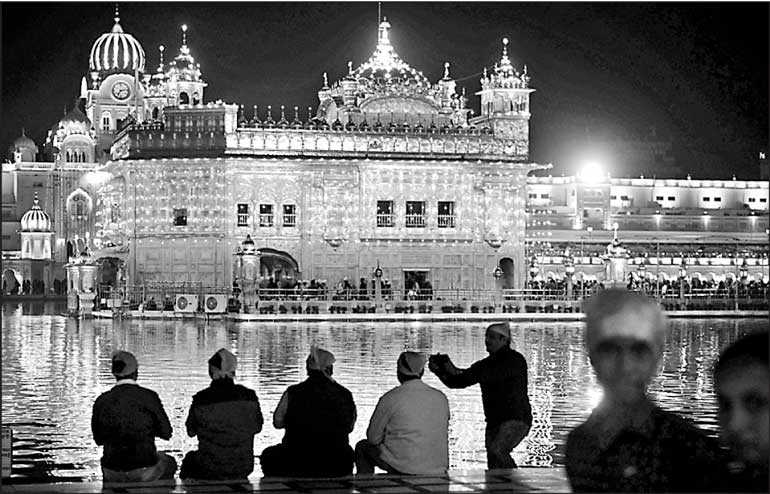Sunday Feb 15, 2026
Sunday Feb 15, 2026
Saturday, 24 November 2018 00:00 - - {{hitsCtrl.values.hits}}

Indian Sikh devotees gather to pay their respects at the Golden Temple on the eve of 549th birth anniversary of Guru Nanak Dev in Amritsar on Thursday — AFP
NEW DELHI (Reuters): India on Thursday approved the building of a new border entry point and road connecting the northern state of Punjab to the border with arch rival Pakistan, making it quicker and easier for Sikh pilgrims to visit a holy site.
Muslim-majority Pakistan has also decided to open the corridor on its side of the border and Prime Minister Imran Khan will lay the foundation stone this month, Foreign Minister Shah Mahmood Qureshi said in a Tweet.
Many Sikhs see Pakistan as the place where their religion began: the founder of Sikhism, Guru Nanak, was born in 1469 in a small village near the eastern Pakistani city of Lahore.
“Government of Pakistan will be urged to recognise the sentiments of the Sikh community and to develop a corridor with suitable facilities in their territory as well,” the Indian government said in a statement.
Pakistan welcomed India’s decision.
“Indian Cabinet endorsement of Pakistan’s proposition on #KartarPurBorderOpening is victory of peace lobby in both countries,” Pakistani Information and Broadcasting Minister Fawad Hussain said in a Tweet. “It’s a step towards right direction and we hope such steps will encourage voice of reason and tranquillity on both sides of the border.”
Thousands of Sikhs already visit the shrine in Pakistan every year. But the new road has stoked fears among some security experts that it could be used by Pakistan and foreign-based Sikh separatists to campaign against India.
The corridor indicates a thaw in relations between the two nuclear-armed foes. In September, India called off a meeting between their foreign ministers to protest the killing of Indian security personnel in Kashmir.
Talks have been stalled for years over Kashmir, claimed by both countries and ruled in part by each of them. Pakistan and India have fought two of their three wars since independence from Britain in 1947 over the region.